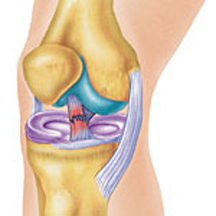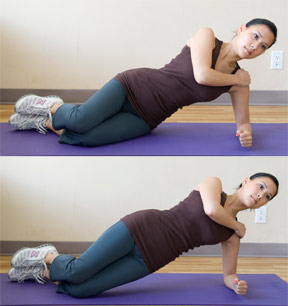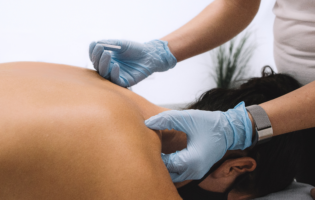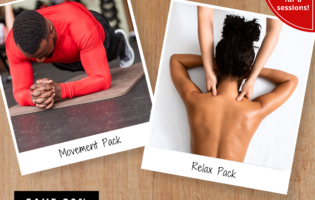Total Therapy Blog
Staying Safe in the Snow

This weekend, Whistler-Blackcomb will be open for business – one of the earliest openings in the mountain’s history. If you’re one of the hundreds of skiers and boarders expected to hit the slopes for the first time this season, keep in mind that the early season is also ripe for injury. Don’t let an early season accident prevent you from joining in the winter fun. Take these basic principles to heart, and enjoy the slopes.
Be Nice to Your Knees

Unless you’re planning on a total knee replacement, you really only have one pair. Be nice to them. Address any nagging issues right away, instead of assuming they’ll just “go away”. Chronic aches and pains are a sign that you may be damaging the joint’s cartilage. If you’ve had a previous knee injury, aching may also be a sign that you need further rehabilitative follow-up.
Ignore these early signs at your own peril. Chronic discomfort due to poor biomechanics is one of the leading causes of early osteoarthritis and major knees injuries like ACL tears. And ladies beware – women are 4-6 times more likely to sustain a knee injury than men, largely because of poor biomechanics (http://www.ncbi.nlm.nih.gov/pubmed/16382007). However, with proper technique the likelihood of injury drops considerably – by an average of 25% for most. A physiotherapist can conduct a biomechanical assessment to determine what you can do to reduce your risk of injury, and keep your knees happy for the long run.
Train Your Core

Going down the slopes requires some serious muscle action. Your core muscles are key to good balance, control, and power. Without them, the movements of your legs and arms are poorly coordinated, and yank on your spine. Core muscles act like a “back brace”, buttressing the spine against excessive movement. Without this protection, the ligaments and discs of the spine can become damaged, leading to back pain, numbness and tingling, and reduced performance.
A strong core also prevents knee injury. A recent study found that athletes with poor core control or a history of back pain were significantly more likely to suffer a knee injury (http://ajs.sagepub.com/content/35/7/1123.short). Build your core strength through a class, one-on-one training, or an individualized routine. But beware – core training does NOT mean doing sit-ups. Check out this article for tips on how you can train your core effectively and safely: http://www.totaltherapy.ca/blog/all-about-core-myths-busted-and-training-tips/
Start Slow and Build
Don’t hit the double-black diamond for your first run of the season. Give your body time to warm-up first. Prior to your first run of the day, try the following for a quick warm-up:
– 5 min walk
– 2 min jogging on the spot
– 2 x 5 squats
– 10x/direction shoulder rolls
– 10 slow high knees, 10 fast high knees
– 10 slow butt kicks, 10 fast butt kicks
– 2 x 5 jump squats
Choose an easier run at first, and take your time. Focus on your technique and position. Once your body is in the groove, you can slowly up the ante with progressively harder runs. Taper off towards the end of the day when you start to fatigue and your technique begins to get sloppy. That way, you can get in a solid day at the slopes without compromising your ability to enjoy future days on the mountain.
By following these simple guidelines, you’ll be able to enjoy the winter season and avoid being sidelined by early injury. So get out there and have fun – let it snow!








Follow Us!
& Stay Up To Date
BLOG